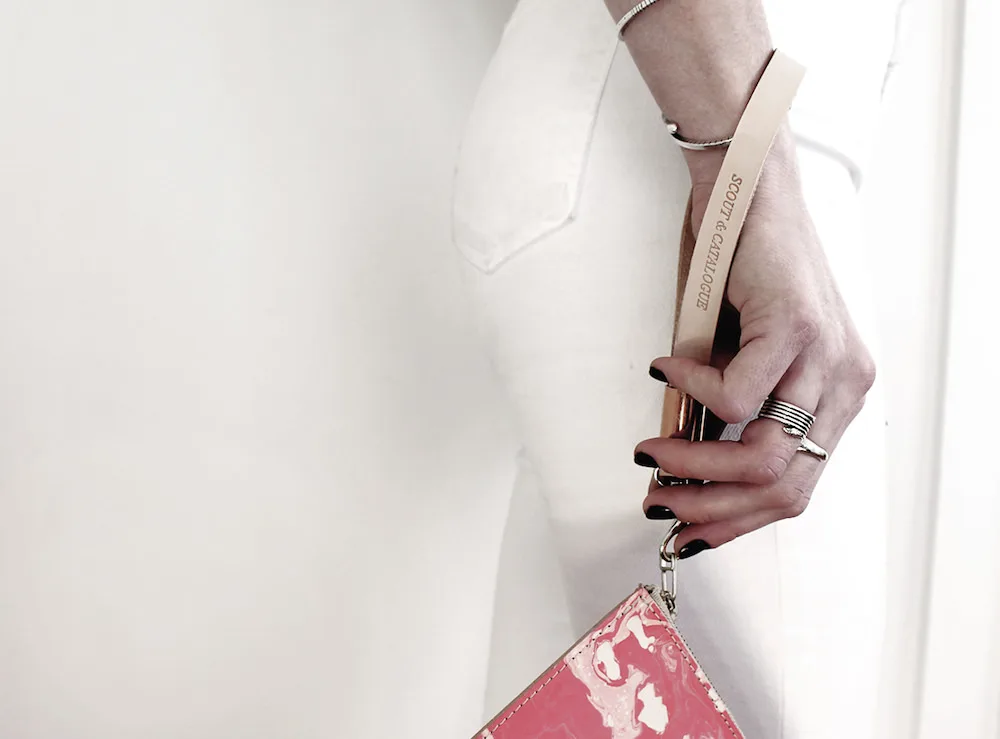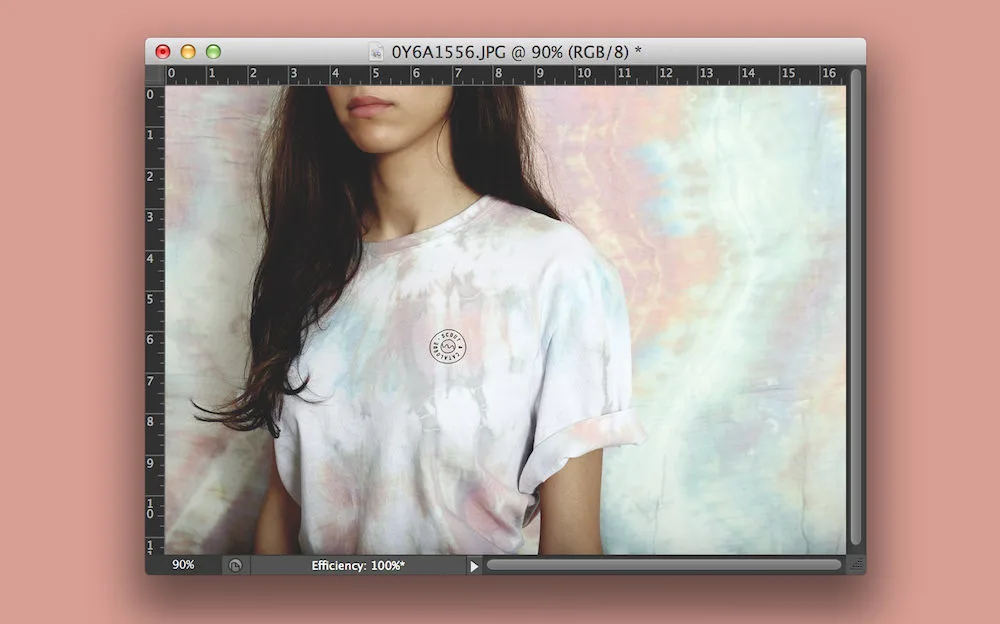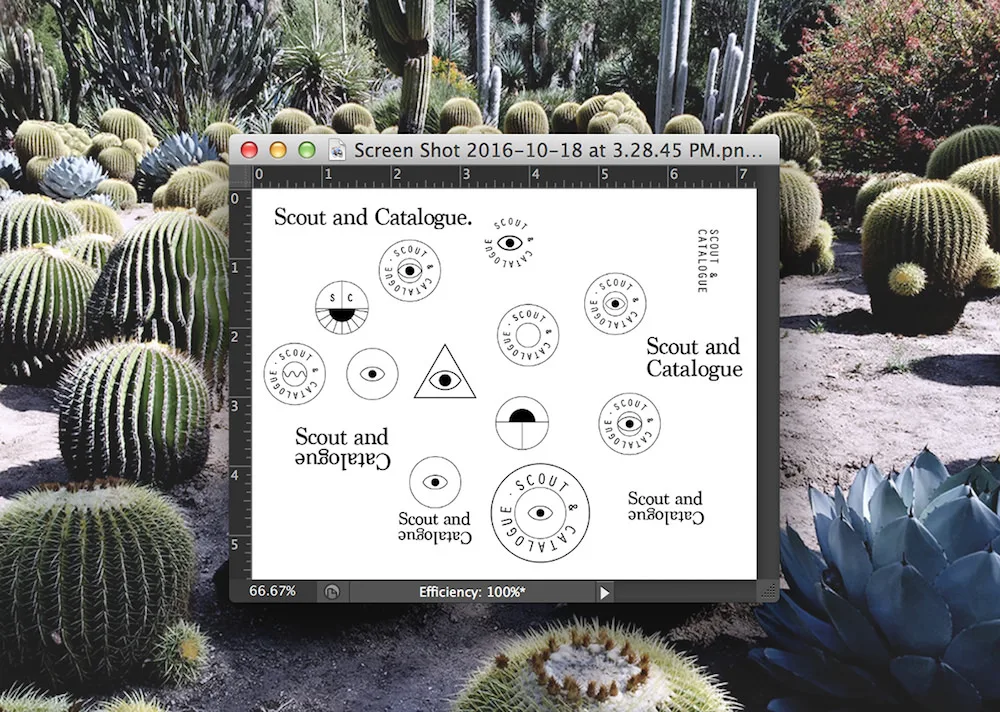Branding Yourself
- 27 October 2016
- ByBreanna Musgrove
- 10 min read

Influenced by her travels in Mexico, Breanna Musgrove launched Scout & Catalogue as a blog to track and share the world around her. S&C soon evolved into an entire line of beach-inspired products. Previously Breanna was a graphic designer and creative director in the fashion industry.
I was living in Mexico and wanted to start my own brand - a personal project to fill my time in a country I wasn't able to legally work in. I sat in my kitchen staring out into the surrounding jungle muttering a series of unrelated words in both English and Spanish. I had recently started to hand dye fabrics and was launching a line of accessories and I wanted to get the brand name just right. At the same time I had started writing a blog about living abroad to update my friends and family on my new daily life. I called it 'Scout & Catalogue' - as I was scouting a new culture and cataloguing it online. The name took me approximately three minutes to come up with - I liked its light reference to travel and adventure, it conveyed my blog objective, and at the time 'something & something' names felt new and fresh.
As I continued to mull over what my 'real' brand name was going to be I was sharing my textile progress on my blog. People responded with enthusiasm and my blog readership grew far beyond my immediate circles. Before I knew it Scout & Catalogue and my work had become synonymous and anytime I mentioned creating product under a different name people grew confused. I finally gave in and moved forward with my accessories line under the name Scout & Catalogue. I have never looked back. Well, almost never.

Before I launched S&C I worked as a Creative Director for a large retailer - a job that included developing and crafting new brands on a regular basis. While we always took the naming process seriously my opinion is that ultimately Shakespeare was right - a rose by any other name would smell just as sweet. I believe that brand success lies primarily in business, brand, creative and product strategies and less in the word(s) chosen for its moniker. That said I've learned a few things along the way that I believe can help when trying to choose the right name for your next project.
That pesky search for meaning, both a life AND a brand naming goal. Take it from me - you will be asked about the name of your company constantly. I just like 'something & something' names does not cut it as a response. We are humans and we are hardwired for story. People buy from brands whose stories align with their own values and your brand name is one of the most prominent and important tools in conveying what your company stands for.

To start, consider your industry. Recently I was helping a friend develop a name for her father's international securities company. His service is to investigate fraud and corruption in overseas markets and as such he needed a name that evoked security, responsibility and respectability. 'Inspector Narwhale' was out. Obviously fashion has quite a bit more wiggle room to be creative but an understanding of your market is pivotal in nailing the right tone for your business.
Speaking of getting an understanding of your market - get to researching your competitors. What are they calling themselves? Do you think their names are helping or hindering their business? Which names do you think are the best? Which do you consider the worst? Why? Being clear about your competitive landscape will help you to make the right decision for your own endeavor and understanding what you like and dislike will help to focus your brainstorming.

Will you be able to truly own your name? I've been a part of developing brands that needed to be copyrightable worldwide. Fun fact: It's almost impossible to think of a word or a series of words (in any language) that can be owned in all world markets. For these projects I learned a few things about dreaming up a name that was not only the right fit for the brand but also the right fit for legal considerations.
In most cases, making sure that your brand name can be copyrighted in a small country where you aren't likely to do business isn't going to be a high priority. Making sure that your name is free and clear for you to use in your own country and the countries you plan to sell in will be your primary concern to start. But if you have visions of world domination, or even visions of being a dominant player in your market, it's a good idea to look into this before you hit the launch button on your new project. One of the companies I worked for owned a brand name in Canada which had an enormous amount of existing brand loyalty that had taken 20 years to cultivate. When they looked to launch in the US, they found that another designer already owned the name. They ended up settling with her for millions.
One of the easiest ways to feel confident that you will be able to own your brand name in all major markets is to make up a new word. If you're extremely strategic, you could start your invented word with the letter A (or a number) because then in every directory it will be one of the first brands listed. Sneaky, right? As always, word invention comes with a caveat of caution in foreign markets. No one wants to try to take over a new market with a name that connotes poop or hangnails or clinical depression in the native language. If you have a dream to expand your business beyond your domestic market sending your potential name to a native speaker in your target market(s) is probably a good call.
Also, copyright restrictions are applied to specific product and industry categories. If you're a fashion label and you want to launch a perfume line, your copyright may or may not include this new product extension. In most cases people copyright every market segment they can possibly foresee their business moving into just to be safe.
Every country has their own name registration laws so make sure to look into yours. Most governments provide name databases so you can see if your name is open for use or already owned. If your business market is primarily outside of the country you reside in you will get the fun task of researching legality in multiple systems. I am Canadian, my business is Canadian, but my clientele base is overwhelmingly American. This means I need to be an expert on copyright rules (and lots of other really boring business rules) in both countries.
A photo posted by Bre (@scout_catalogue) on Oct 10, 2016 at 1:46pm PDT
One of my biggest regrets with S&C is including one of the few words in Canadian English (Catalogue) that differs from American English (Catalog). With the US being my largest following it seems like a rookie mistake and, in all honesty, it was. In this case I don't get the sense that it has obstructed sales but it does remain a bit of a cautionary tale.
Long story short: It's important to consider how you'll be applying your brand name. In most cases you want something that can be shortened so that you have flexibility when applying it across your brand platform. I learned this lesson the hard way when I had to try to fit a very long brand name onto a denim rivet. It was a nightmare. Obviously there is room to design a logo (ie. Nike swoosh) that can fit in smaller spaces if you are not open to shortening your name, but if the idea of abbreviating doesn't faze you I highly recommend it. I am forever grateful for 'S&C' acting as a balance to the mouthful that is Scout & Catalogue.

And lastly - have fun. We never do our best work when we feel like something is overly precious. I've found that group brainstorming, magnetic poetry, word association, and countless hours deep diving in a thesaurus have all been useful. Throwing out the most ridiculous options, preferably around others you can laugh with, often leads you to the right place. And, at least initially, there are no bad ideas. I came up with countless poor options for Scout & Catalogue, but it turns out the name I spent three minutes with has become the last seven years of my life. What you call your brand is important to be sure, but it's always helpful to remember that a rose is a rose, regardless of what you name it.
27 October 2016
Words by:Breanna Musgrove
Tags
- Share